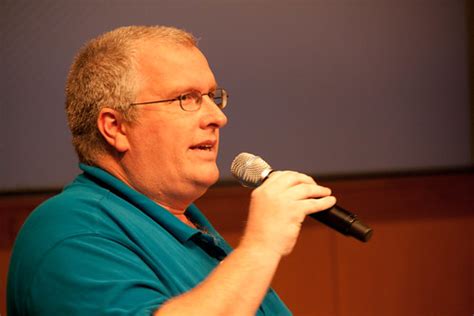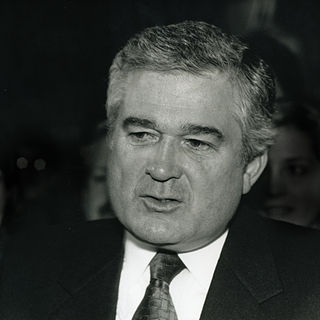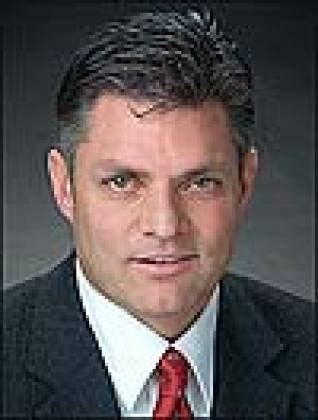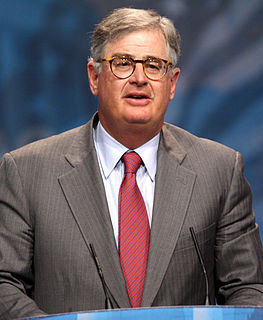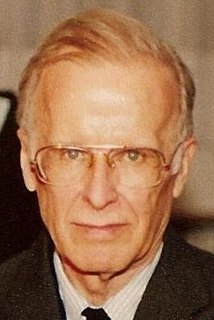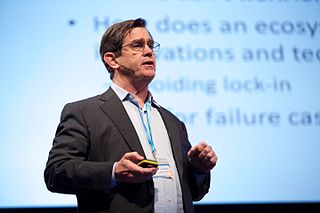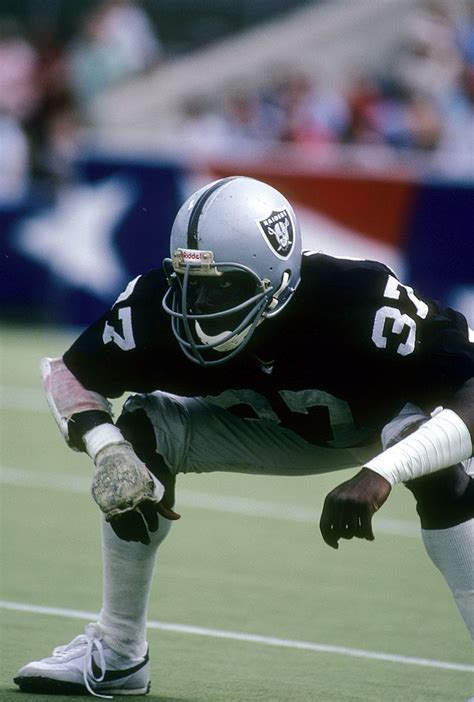Top 170 Ibm Quotes & Sayings - Page 3
Explore popular Ibm quotes.
Last updated on April 21, 2025.
I believe strongly that a group's potential is eventually limited by the strength of its leadership. I'm an outsider, but it still looks to me like the leadership in the Java w orld is Fouled Up Beyond ALL Recognition. Java ISVs don't know whether to listen to Mom or Dad. Everybody knows IBM should just buy Sun and clean up the mess. When are they going to do it?
We have started something called the Corporate Services Corps. Now, it was modeled after the Peace Corps from long ago, the 1960s. And the idea was in this modern day and age, how do you get IBM'ers around the world to be global citizens? You know, globally aware, contribute, understand how to work in that environment, but do it on scale.
It's fascinating as we continue to innovate and lead the way in both the application space and the database space. In the very beginning, people said you couldn't make relational databases fast enough to be commercially viable. I thought we could, and we were the first to do it. But we took tremendous abuse until IBM said, "Oh yeah, this stuff is good."
Whether lawyer, politician or executive, the American who knows what's good for his career seeks an institutional rather than an individual identity. He becomes the man from NBC or IBM. The institutional imprint furnishes him with pension, meaning, proofs of existence. A man without a company name is a man without a country.
I have my own theory about why decline happens at companies like IBM or Microsoft. The company does a great job, innovates and becomes a monopoly or close to it in some field, and then the quality of the product becomes less important. The company starts valuing the great salesmen, because they’re the ones who can move the needle on revenues, not the product engineers and designers. So the salespeople end up running the company.
Gates has always understood Moore's Law better than anyone else in the industry. If you can make something run at all, get it out there -it may be slow and clunky, but hardware improvements will bail you out. If you wait until it's running perfectly on the hardware already in the field, it will be obsolete before it's released. This philosophy built Microsoft and is the main reason Microsoft won the war IBM declared back in the OS/2 days.
IBM has had a long partnership with Siebel, JD Edwards and Peoplesoft, so from a partner perspective, this is a good move by both sides. This agreement reflects the reality of what customers expect for their investment, support and openness. Oracle really needed to do this for Websphere, but it opens up tremendous opportunities for both companies.
We no longer live in a world of nations and ideologies. The world is a college of corporations, inexorably determined by the immutable bylaws of business...There is no America. There is no democracy. There is only IBM, and ITT, and AT&T, and DuPont, Dow, Union Carbide, and Exxon. Those are the nations of the world today.
Every disruptive innovation is powered by a simplifying technology, and then the technology has to get embedded in a different kind of a business model. The first two decades of digital computing were characterized by the huge mainframe computers that filled a whole room, and they had to be operated by PhD Computer Scientists. It took the engineers at IBM about four years to design these mainframe computers because there were no rules. It was an intuitive art and just by trial and error and experimentation they would evolve to a computer that worked.
Our philosophy is that we want to be an ecosystem. Our philosophy is to empower others to sell, empower others to service, making sure the other people are more powerful than us. With our technology, our innovation, our partners - 10 million small business sellers - they can compete with Microsoft and IBM.
I was into the Mets because my Dad worked at IBM where he got free Mets tickets, so I was into the Mets... then I got to 'Saturday Night Live' where my boss has unbelievable N.Y. Yankees tickets, so he invites us to the games. I'm going to all the games, so I might as well root for the team I'm gonna go sit with.
The Chinese are quite entrepreneurial. Remember when Lenovo bought IBM's PC division. It was said that China didn't need a brand name, China didn't need to buy Lenovo to get into the PC business, I remember reading a one-liner somewhere which struck me as quite possibly true, it said the one thing that the Chinese had not been able to copy or figure out was the way, in terms of systems, that Americans - it probably would be true for Europeans as well - that Americans install and live by their management systems, while China is still quite half-assed. Perhaps that is a true statement.
And so when I moved to IBM, I moved because I thought I could apply technology. I didn't actually have to do my engineer - I was an electrical engineer, but I could apply it. And that was when I changed. And when I got there, though, I have to say, at the time, I really never felt there was a constraint about being a woman. I really did not.
In December 1989, my mother died very suddenly, and that sparked a re-evaluation of what I was doing, and I realized I was mediocre at everything. I was a mediocre IBM employee, I was a mediocre entrepreneur, I was a mediocre artist. I decided that, although my mom wouldn't be around to see it, I wanted to be great at something.
No one has a monopoly on knowledge the way that, say, IBM had in the 1960s in computing, or that Bell Labs had through the 1970s in communications. When useful knowledge exists in companies of all sizes and also in universities, non-profits and individual minds, it makes sense to orient your innovation efforts to accessing, building upon and integrating that external knowledge into useful products and services.
When you were a kid, it [work in IBM] seemed like an awesome job. I'd get to go to work and have a briefcase. I loved how Dad wore a tie and got a car. I didn't know if all those things came together. I'd see my dad go off to work and we'd wait for him to come home, and we'd all be excited to see him.
It was a very big gamble. I lost my job in France, I received a job in which was extremely uncertain, how long would IBM be interested in research, but the gamble was taken and very shortly afterwards, I had this extraordinary fortune of stopping at Harvard to do a lecture and learning about the price variation in just the right way.
I remember visiting my grandmother Adele in Ponce Inlet, Florida, when I was three years old, and she had an IBM electric typewriter. I thought that this electric typewriter was about the most fascinating toy in the world - I liked the little bell and the sounds and the feel of the keys and especially the erase key.
Artificial intelligence uses a complex set of rules - algorithms - to get to a conclusion. A computer has to calculate its way through all those rules, and that takes a lot of processing. So AI works best when a small computer is using it on a small problem - your car's anti-lock brakes are based on AI. Or you need to use a giant computer on a big problem - like IBM using a room-size machine to compete against humans on Jeopardy in 2011.
If the DHS insists, as bureaucracies are apt to do, that open-source must be certified via a sanctioned, formal process, it will interfere with the informal process of open-source itself. It seems to me the DHS is trying to turn an open-source development project into a Microsoft (or IBM or Oracle) software development project. And we know what that means: more, not fewer, errors -- security and otherwise.
We have started something called the Corporate Services Corps. Now, it was modeled after the Peace Corps from long ago, the 1960s. And the idea was in this modern day and age, how do you get IBM’ers around the world to be global citizens? You know, globally aware, contribute, understand how to work in that environment, but do it on scale.
Every breakthrough business idea begins with solving a common problem. The bigger the problem, the bigger the opportunity. I discovered a big one when I took apart an IBM PC. I made two interesting discoveries: The components were all manufactured by other companies, and the system that retailed for $3,000 cost about $600 in parts.
He’s totally different from the typical jock. He has no ego. That’s unique for someone with such accolades. His strength comes from a higher power. You can’t explain Steve Largent by computer – he doesn’t belong on an NFL field. You put his size and speed in an IBM computer up in Silicon Valley, it would chew up his data card and laugh.
